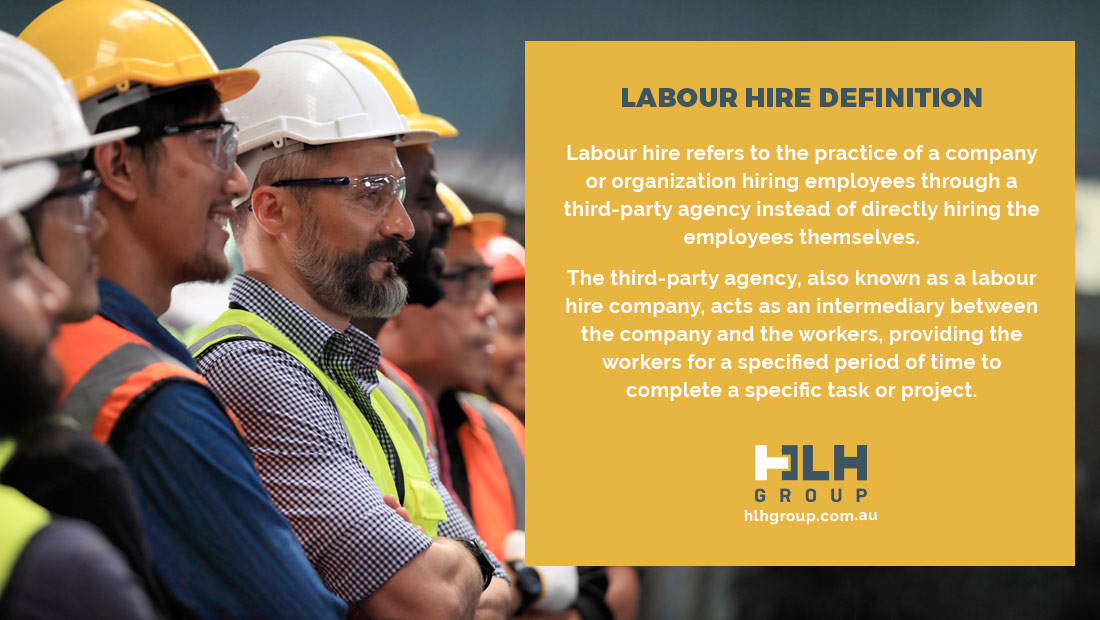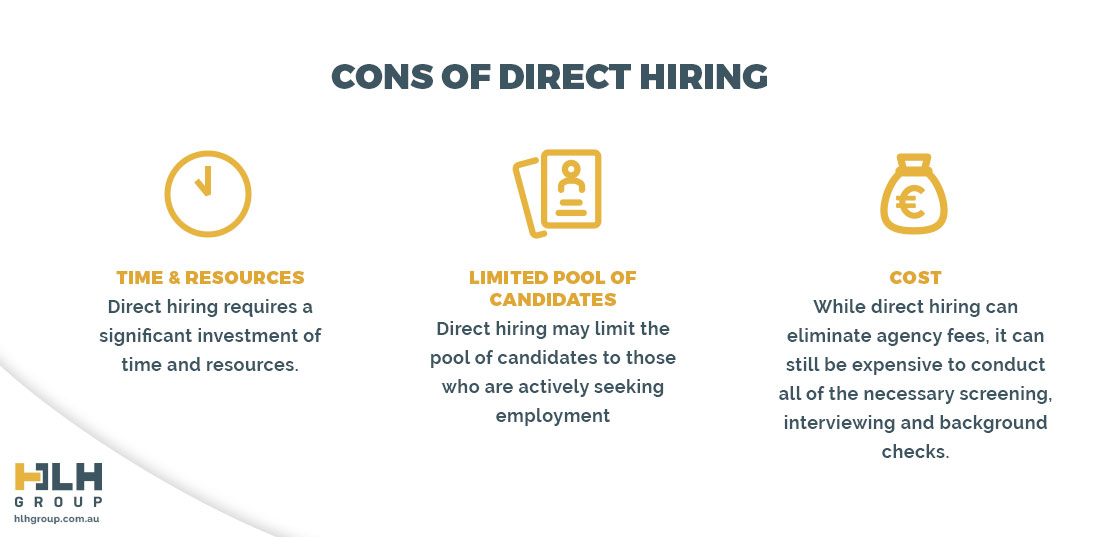
16 Feb The Pros and Cons of Using Labour Hire Vs Direct Hiring for Construction Projects
Labour Hire vs Direct Hiring
Construction projects are complex undertakings that require the right mix of manpower, resources, and experience to be completed successfully. When it comes to sourcing workers, construction companies have two main options – labour hire or direct hiring. Both options have their pros and cons, and the best choice for your company will depend on the specific needs and requirements of your project.
Labour Hire & Direct Hiring Definitions
Labour Hire Definition:
Labour hire refers to the practice of a company or organization hiring employees through a third-party agency instead of directly hiring the employees themselves. The third-party agency, also known as a labour hire company, acts as an intermediary between the company and the workers, providing the workers for a specified period of time to complete a specific task or project.

Direct Hiring Definition:
Direct hiring, on the other hand, refers to the process of a company or organization directly employing workers to perform specific tasks or work on projects. In this process, the company becomes the direct employer of the workers and is responsible for their wages, benefits and employment conditions. The workers are considered employees of the company and have a direct employment relationship with it
In this blog, we’ll take a closer look at the Pros and Cons Of Using Labour Hire Vs Direct Hiring for construction projects.
Pros of Using Labour Hire
- Flexibility: Labour hire companies can provide a flexible workforce, allowing you to scale up or down depending on the needs of your project. This can be especially useful during peak periods when you need to increase your workforce quickly.
- Cost Savings: Hiring through a labour hire company can save you money on benefits, insurance, and other costs associated with direct hiring. Labour hire companies like HLH Group take care of these costs, which can be a significant saving for your company.
- Access to Skilled Workers: Labour hire companies often have a pool of skilled workers to choose from, which can save time in finding the right person for the job. This can be especially useful for construction projects that require specialised skills and experience.
- Reduced Legal and Administrative Burden: Don’t stress! Labour hire companies handle the legal and administrative aspects of hiring, freeing up your time to focus on the project itself.
Pros of Direct Hiring
- Control: When directly hiring employees, the employer has more control over the hiring process, selection criteria and employment conditions. This can result in a more efficient and streamlined process and ensure that the best candidates are selected for the company.
- Reduced Turnover: Direct hiring can reduce employee turnover rates as the employer has a better understanding of the employee’s skills, experience, and fit within the company. This can lead to a better match and a lower likelihood of the employee leaving the company soon after being hired.
- Quality Control: Direct hiring allows the employer to personally assess the candidate’s skills, experience, and fit within the company. This can result in a better match between the employee and the company, leading to improved job performance and a higher quality of hire overall.

Cons of Direct Hiring
- Time and Resources: Direct hiring requires a significant investment of time and resources, including job postings, resume screening, interviewing, and background checks. This can take away valuable time and resources that could be spent on other important tasks, such as managing projects and ensuring job site safety.
- Limited Pool of Candidates: Direct hiring may limit the pool of candidates to those who are actively seeking employment, limiting the company’s ability to reach passive candidates who may have the skills and experience required for the specific role.
- Cost: While direct hiring can eliminate agency fees, it can still be expensive to conduct all of the necessary screening, interviewing, and background checks required for a construction role. Additionally, the cost of employee benefits, such as insurance, sick leave and annual leave, will be absolved by the employer rather than the agency.
Labour Hire v Direct Hire Conclusions
In conclusion, both labour hire and direct hiring have their pros and cons for construction companies. While labour hire can provide a flexible workforce, reduced administrative responsibilities, and access to a wider pool of skilled workers, it can also result in a lack of control over the workforce. Direct hiring, on the other hand, offers increased control and reduced turnover, but requires a significant investment of time and resources and can limit the pool of available candidates.

Experienced & Skilled Labour Hire
If you are looking for experienced and skilled workers for your construction project, HLH Group is here to help. Our team of professionals is dedicated to providing the best possible workers to meet your specific needs and requirements. Contact us today on info@hlhgroup.com.au to learn more about our labour hire rates and how we can help you find the right workers for your construction project.




No Comments